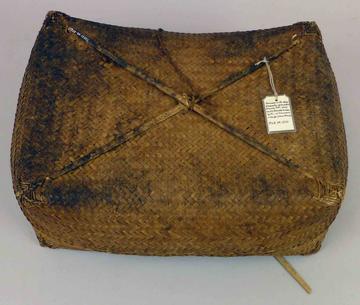DiMuse is a 4-year research project, involving Dr Arkotong Longkumer of Edinburgh University as Principal Investigator, Professor Clare Harris from the University of Oxford as Co-Investigator, a Postdoctoral Fellow, and numerous research partners in the UK and India. The grant will involve a number of activities – a film documentary, a graphic novel, a bespoke online exhibition with 3-D objects curated onto a website, and 2 exhibitions – one in Guwahati (Assam) and the other at the Pitt Rivers Museum (Oxford, England).

Gaidinliu (1915-1993), a Zeliangrong Naga, was 16 years old when she instigated an uprising against the British between 1929 and 1932 in the present Indian regions of Assam, Nagaland, and Manipur. When she was captured, the British confiscated her notebooks, body cloths, bracelets and amulets, and other ritual objects. These objects were donated to the Pitt Rivers Museum, Oxford, and they are now known as the Gaidinliu collection. The continued existence of this collection in a UK museum raises important questions about whether and how they should be returned to the Indigenous peoples from whom they were taken, questions that are especially pertinent as UK museums discuss decolonising their exhibitions.
By involving multiple stakeholders, DiMuse will show how the Gaidinliu collection needs to be rethought, reframed, and challenged. It will also open up larger questions regarding digital repatriation, ownership, and knowledge production. How do objects evolve both because interpretations of, and priorities about, them alter, and because they affect people in different ways at different times? Furthermore, how can the project inform international debates about Indigenous traditional knowledge protection and the promotion of Indigenous intellectual property rights? Through a website, sharing the collection with the Indigenous community via WhatsApp, video, film, a graphic novel, and 2 exhibitions in Guwahati and the Pitt Rivers Museum, and various publications, we will disseminate the findings to a wide audience, including staff and students in educational institutions in India and the UK.